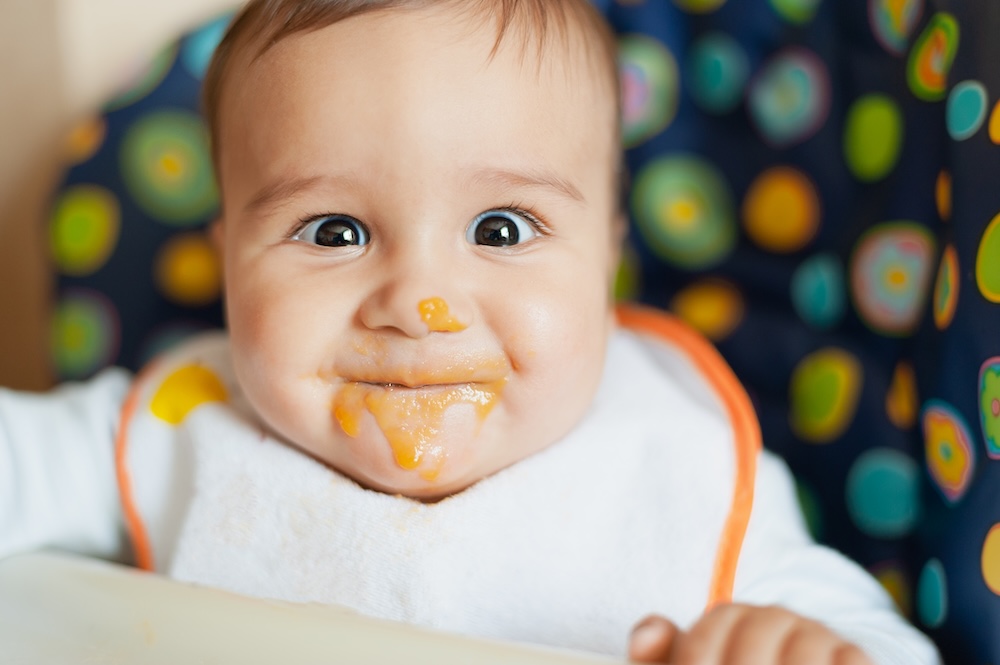As demand for clean, nutritious baby food rises, Happy Baby (also known as Happy Family Organics) has taken a lead in providing organic, trust-first nourishment. Their mission: make organic, dentist-approved, and sustainably sourced baby food accessible—without compromise.
This post highlights Happy Baby’s founding values, their product diversity, proven certifications, 2025 updates on quality and safety, challenges in the space, retail accessibility, and what their progress reveals about the future of infant nutrition.
The Story Behind Happy Baby
Launched in 2006 by Shazi Visram—fondly dubbed “Chief Mom”—Happy Baby (now Happy Family Brands) set out to offer parents organic baby food with ingredients they could trust. The brand quickly expanded from purees into cereals, meals, snacks, and formula, always with a focus on transparency, clean ingredients, and parental empowerment.
Product Range & Quality Standards
Happy Baby offers an extensive lineup:
- Stage‑specific purees, cereals, snacks, dissolvable solids, teething biscuits, and formula.
- Notable features: Nutty Blends for allergen introduction, WIC-approved products in select states, and a wide price-accessibility appeal.
Brand Progress Check (as of 2025)
- Clean Label & Certainty: Happy Baby is the largest organic infant feeding brand to earn the Clean Label Project’s Purity Award across their formulas and puree lineup.
- Packaging Promise: In 2019, the brand pledged to make packaging fully reusable, recyclable, or compostable by 2025. Their progress toward that target remains unconfirmed in recent updates.
- Quality Reformulation: In 2024, Happy Baby launched a revamped organic infant formula with a unique probiotic & prebiotic blend, crafted in their own FDA-registered facility in Germany.
- Ongoing Heavy Metals Concerns: Reuters data (April 2025) flagged certain products—including from Happy Baby—for lead levels exceeding California’s strict safety limits. While the brand claims regulatory compliance, elevated readings raise concern.
Summary: The brand continues to uphold high clean-label standards and innovate in formula and packaging. Yet, progress on packaging circularity is uncertain, and heavy metal findings underscore the need for ongoing transparency and reform.
Why It Matters in Infant Nutrition
Choosing Happy Baby supports:
- Transparency-first organic nutrition, with non‑GMO, pesticide‑free ingredients.
- Purposeful innovations—like allergen-friendly blends and clinically developed formula.
- Progress in sustainability—though packaging targets need visibility and meeting.
In the broader context, the brand’s journey embodies organic trust, accessibility, and responsible evolution.
Where to Buy Happy Baby Products
- In-store: Available nationwide at major retailers like Walmart, Target, Kroger, and Whole Foods.
- Online: Sold on platforms like Amazon, Thrive Market, and directly via Happy Family’s website.
This accessibility helps ensure clean nutrition reaches a wide range of families.
Key Challenges the Brand Faces
- Rising Competition: The organic baby food sector is becoming crowded, pressuring Happy Baby to continuously innovate to stay differentiated.
- Packaging Circularity: As of 2025, the goal of fully recyclable or compostable packaging remains unverified—yet systemic infrastructure and consumer behavior will play large roles.
- Safety Transparency: Reports of elevated heavy metals emphasize the need for independent testing and clear, proactive communication.
Final Thoughts
Happy Baby remains a cornerstone in organic infant nutrition—strong on ingredient integrity, formulation science, and accessibility. Their Clean Label recognition and thoughtful product innovations affirm their leadership. But the twin challenges of ensuring packaging sustainability and addressing safety controversies persist. As consumers and advocates for healthy beginnings, our focus should turn to supporting brands that push forward with open communication and measurable progress.








